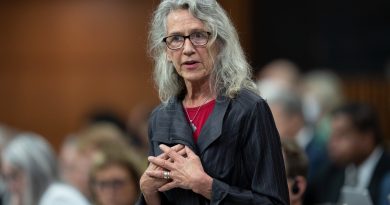MLAs in Canada’s Northwest Territories expect ‘hectic’ sitting ahead of territorial election
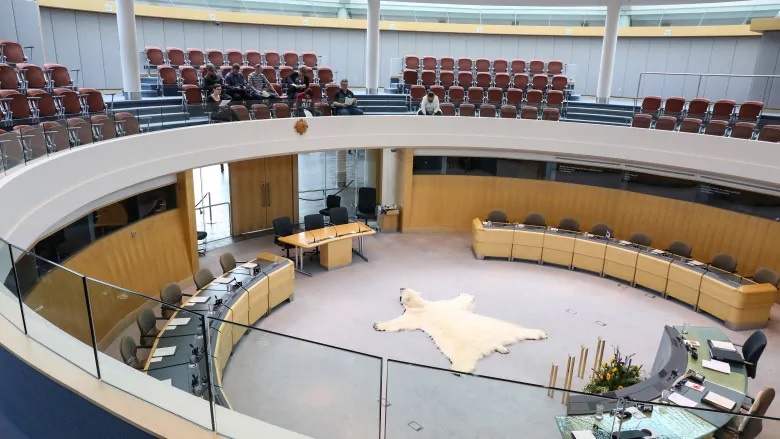
Northwest Territories MLAs, in Northern Canada, have a jam-packed agenda as they head into their last scheduled sitting before the Oct. 1 territorial election.
The 18th Legislative Assembly reconvenes for two weeks starting on Monday. There are 16 pieces of legislation on the order paper, and only ten working days set to debate and vote on all of them.
The list includes some high-profile bills.
That includes the long-awaited Mineral Resources Act, which would revamp mining laws that haven’t changed since in 2014, when the territory gained control over natural resources from the federal government.
Also on the docket are amendments to the Petroleum Products Act and the Income Tax Act, which together would lay the foundation for an N.W.T. carbon tax.
MLAs will also debate the Post-Secondary Education Act, which would bring the government a step closer to establishing a polytechnic university in the territory.
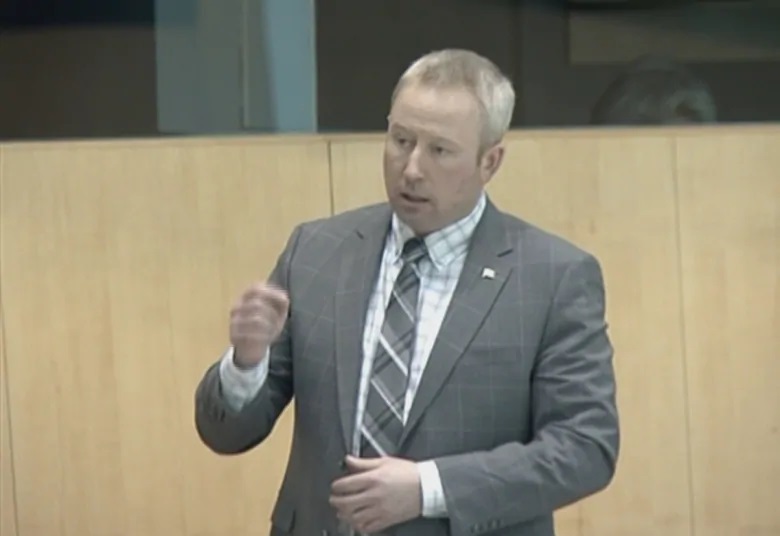
MLAs prepare for ‘extended hours’
The next two weeks are going to be “hectic,” said Cory Vanthuyne, the first-term MLA for Yellowknife North.
“We’re clearly going to have to look for extended hours and go late into the evening, some of these days of sitting,” he said.
Rules of the legislature permit MLAs to tack hours onto their sitting days.
It’s “quite common,” said Glen Rutland, deputy clerk in the Legislative Assembly. “They can sit as late as they would like to.”
Members can also collectively decide to add days to the session, said Rutland, but that’s more rare.
For elected officials, said Vanthuyne, much of the work on legislation didn’t happen until this assembly’s final year.
“It put an immense workload on my committee, the committee members, our research and clerk staff [and] our law clerks,” he said. “When we went into the communities, we felt that the communities, as well, were feeling overwhelmed and burdened.”
Still, Vanthuyne is “fairly confident” the members will pass all the bills before them.
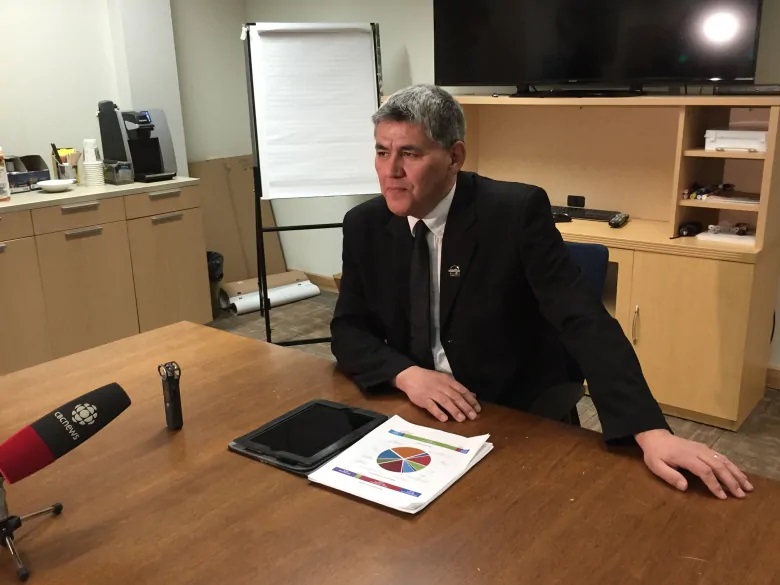
Contentious bills
Outgoing Finance Minister Robert C. McLeod was also “fairly confident” in the assembly’s ability to pass all remaining legislation.
However, when asked which bill, if any, may be especially contentious, he said, “all of them.”
“Everybody has issues with every piece of legislation that comes through,” he said.
“One of the beauties of consensus government is we’re able to sit down and try to hammer out a lot of the details in committee and then on the floor of the house.”
McLeod, who has represented Inuvik Twin Lakes for 15 years, said the 18th Assembly “ranks number four of the four assemblies that I’ve been a part of.”
“We spent a lot of time at the beginning of assembly — time and energy and resources — working on our mandate,” as well as the midterm review, said McLeod, who is not seeking a fifth term in office.
“These are energy and resources that we could have been putting to trying to improve … conditions for people in the Northwest Territories,” he said.
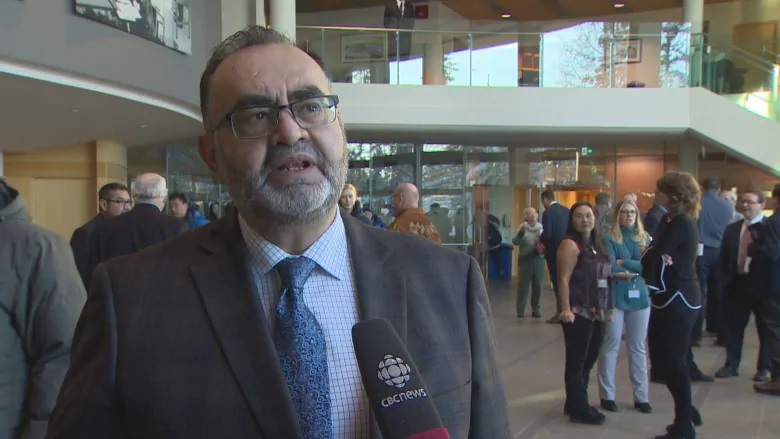
230 mandate commitments
The 18th Assembly gave itself 230 mandate commitments that ranged from reducing homelessness and lowering taxes on small businesses, to supporting early childhood programs. As of Friday, according to its own mandate tracker, the government has crossed 175 items off its commitment list.
“My personal feeling was that the mandate was too long,” said Tom Beaulieu, who has represented Tu Nedhé-Wiilideh for three consecutive terms.
“The previous government that I sat on, we had many, many, many less items on our mandate and then the ones that this government had taken on.”
But all things considered, Beaulieu believes this government has done a “pretty good job” of accomplishing what it set out to do.
Frame Lake MLA Kevin O’Reilly is less charitable.
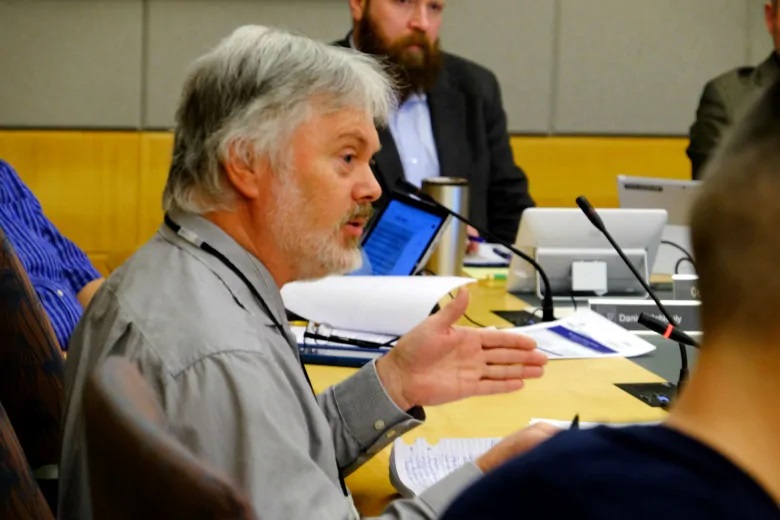
The first-term member said the mandate commitments “were too broad and they gave cabinet too much latitude to say that they had done things, in some cases, when things had not been done.”
As for the assembly’s 16 outstanding bills, O’Reilly doubts all those laws will be of a high quality, if passed now.
“I know some of them have very significant problems or issues with them, and at least one of them I’m not going to be supporting,” he said.
O’Reilly said he won’t be voting for the carbon tax legislation as it stands, in part because it doesn’t require public reporting on how revenues are raised, or how they’re spent.
Herb Nakimayak, the first-time MLA for Nanakput, conceded that “government moves very slow at times, and sometimes short-term issues become long-term issues.”
“You need to kind of focus on the end result and ensure that their constituents are taken care of,” he said. “Especially those that don’t really have a voice.”
Related stories from around the North:
Canada: Nunavut MP Hunter Tootoo won’t seek re-election in Canadian election, CBC News
Finland: Finland’s new gov breezes through no-confidence vote over its agenda, Yle News
Sweden: Swedish Centre Party promises tax break for rural northerners, Radio Sweden
United States: Alaska capital budget vetoes to hit homelessness, addiction treatment, Alaska Public Media



